By Jennifer Khirallah, Biomedical Engineering Ph.D. Candidate
The Graduate Student Council (GSC) serves graduate students across all areas in the Graduate School of Arts and Sciences (GSAS), School of Engineering (SoE), and the School of the Museum of Fine Arts at Tufts (SMFA at Tufts). The GSC is responsible for organizing events, funding student research travel, and aiding and funding graduate student organizations (GSOs). Some of the notable events hosted by the GSC are Pub Nights, the Annual 5K Run/Walk, Apple Picking, the Graduate Student Research Symposium, and many more. These events aim to serve the needs of all the students in these graduate programs by bringing them together, giving them tools to succeed, and connecting them with necessary resources.
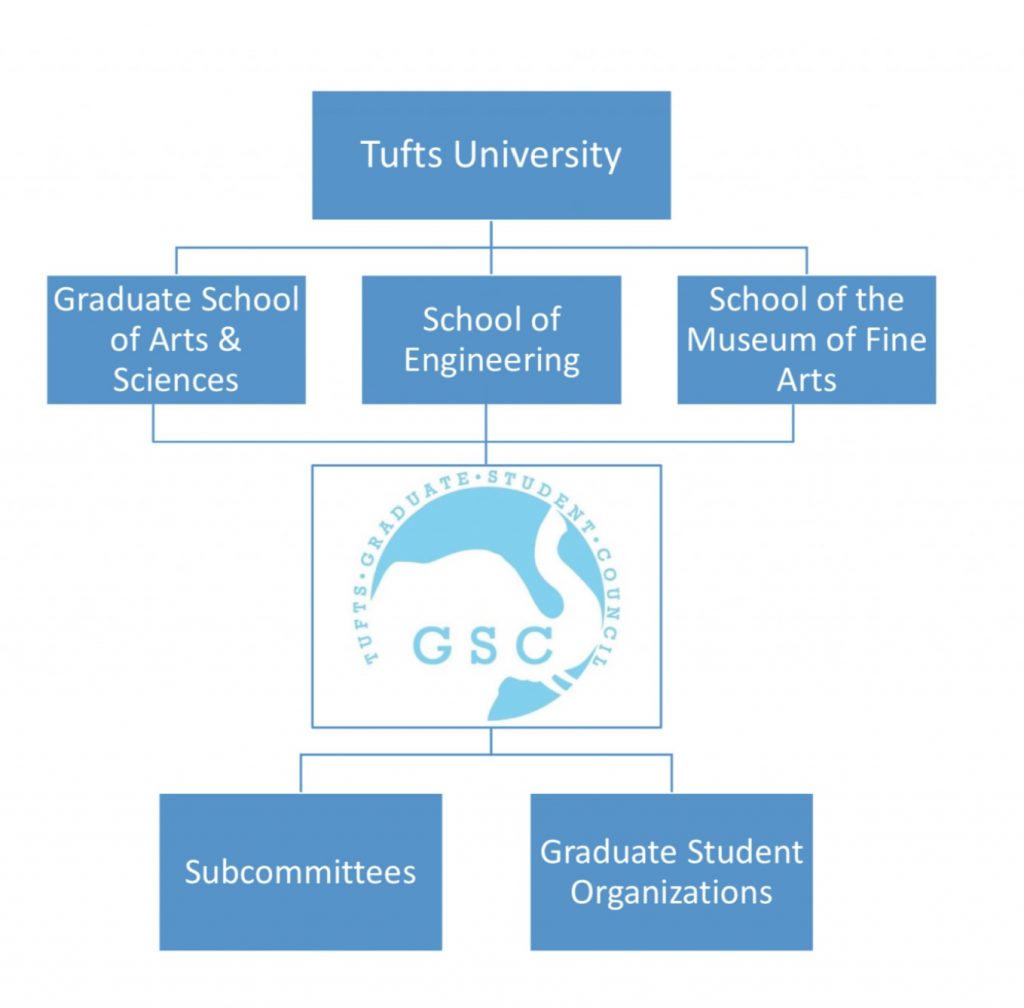
I am currently the Community Outreach Chair on the GSC’s Executive Board (e-board) and thus have a unique perspective on how it runs from the inside. It’s amazing to be part of such a great group that serves such a large community. By being involved on the e-board, I see how this large organization runs in order to anticipate and meet every need of these students. In this role I have organized a clothing swap, a beach cleanup, a food drive, valentine’s day cards for soldiers, and the annual 5k (happening on 4/22/22)! These events have united the Tufts and Medford community to allow students to give back while having fun and meeting other students.
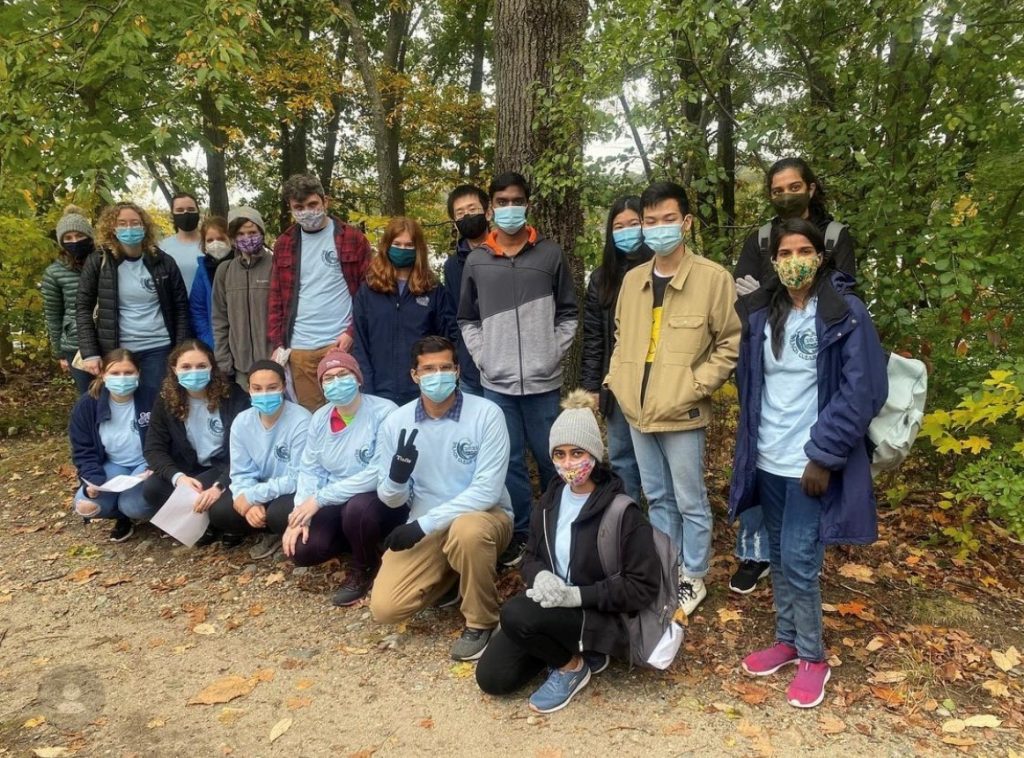
The GSC e-board members each play a specific role in its smooth functioning. The President oversees all operations and plans Graduate Student Appreciation Week. The Vice President aids the chairs and runs the graduate student lounges at Curtis and West Hall. The Secretary manages the social media, advertising for the GSOs, and curating the newsletters. The Treasurer is in charge of managing the graduate student fund and distributing it to GSC chairs, GSOs, and graduate student travel awards. There are six GSC chairs that each aim to serve different groups and interests: Academic, Arts & Humanities, Community Outreach, International, Social, and Student Life. There are subcommittees of these chairs that have volunteers and department reps that help out with organizing and planning events. If you’re interested in getting involved in the e-board, there are elections on 5/3/22 and anyone and everyone is encouraged to apply for these positions! For more information check out the GSC’s website )!
If you have any questions or concerns about any aspect of your graduate life at Tufts, or if you would like to become involved in the GSC, please do not hesitate to contact us on our website. Check out Jumbo Life and the GSC website and follow us on Instagram for upcoming events!

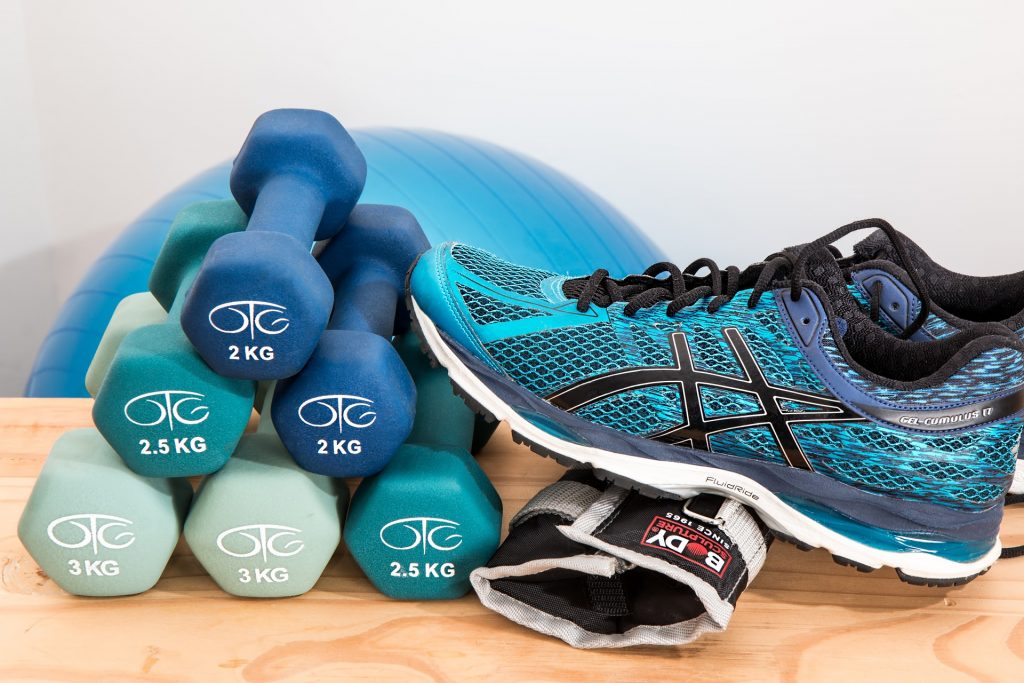
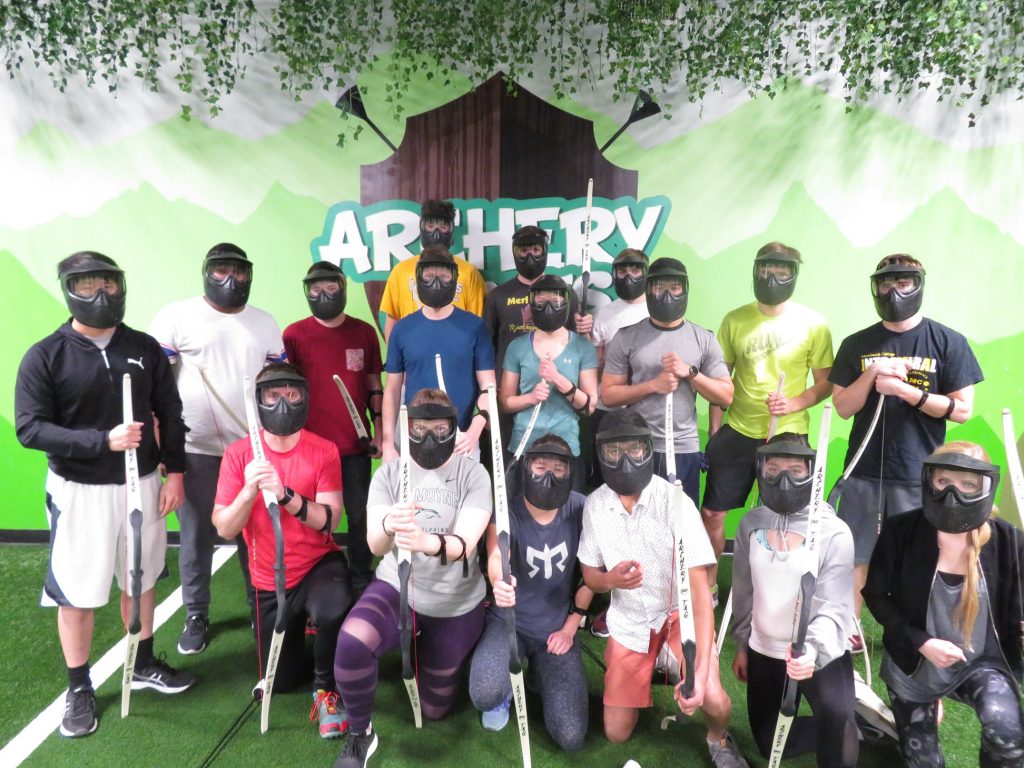
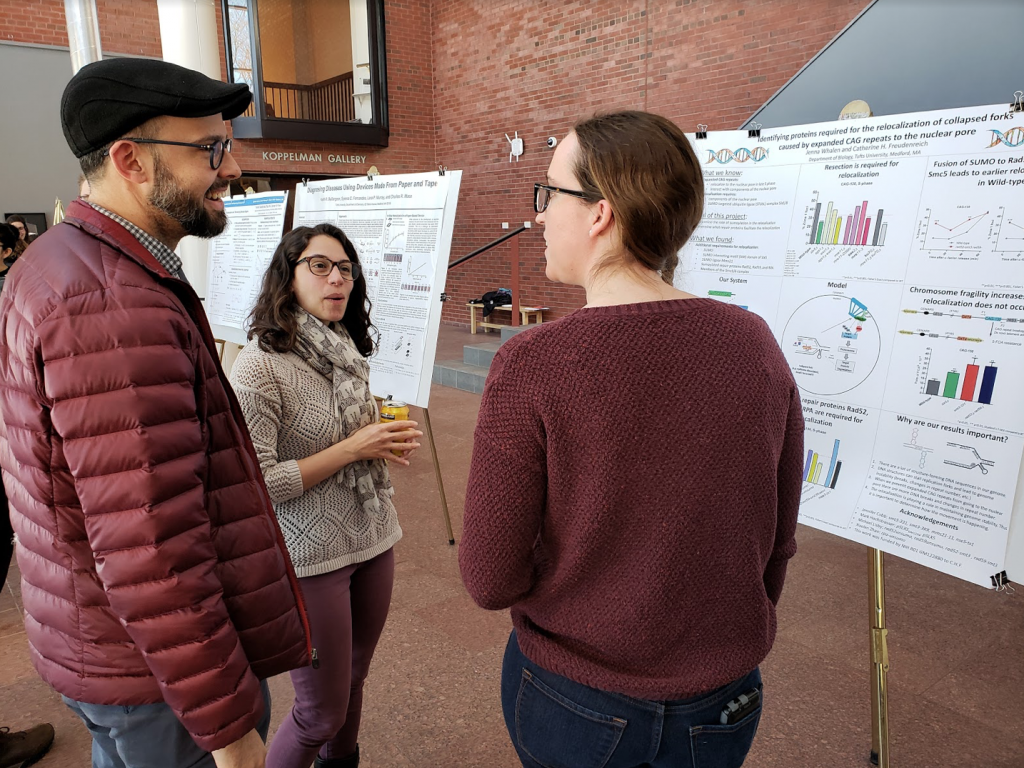
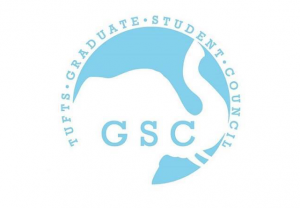
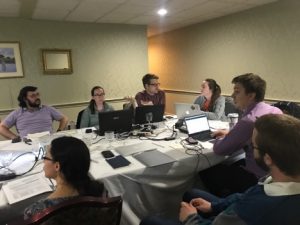

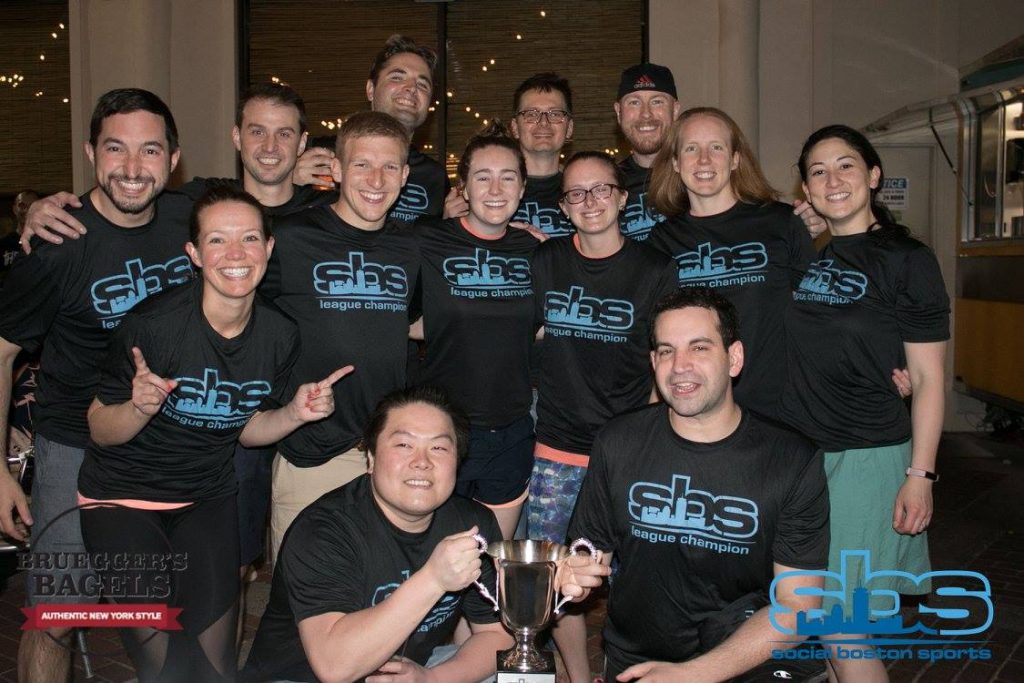
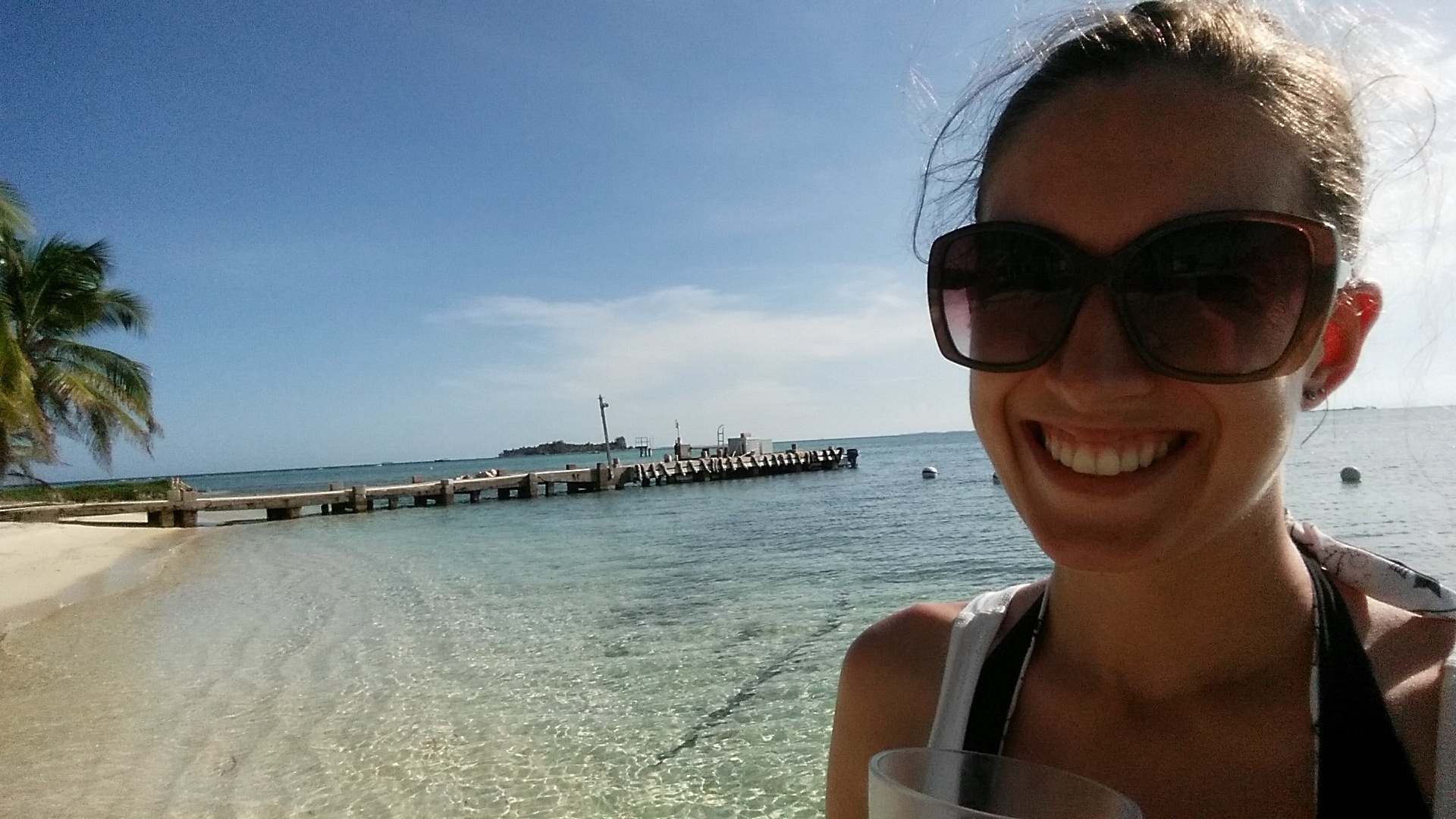
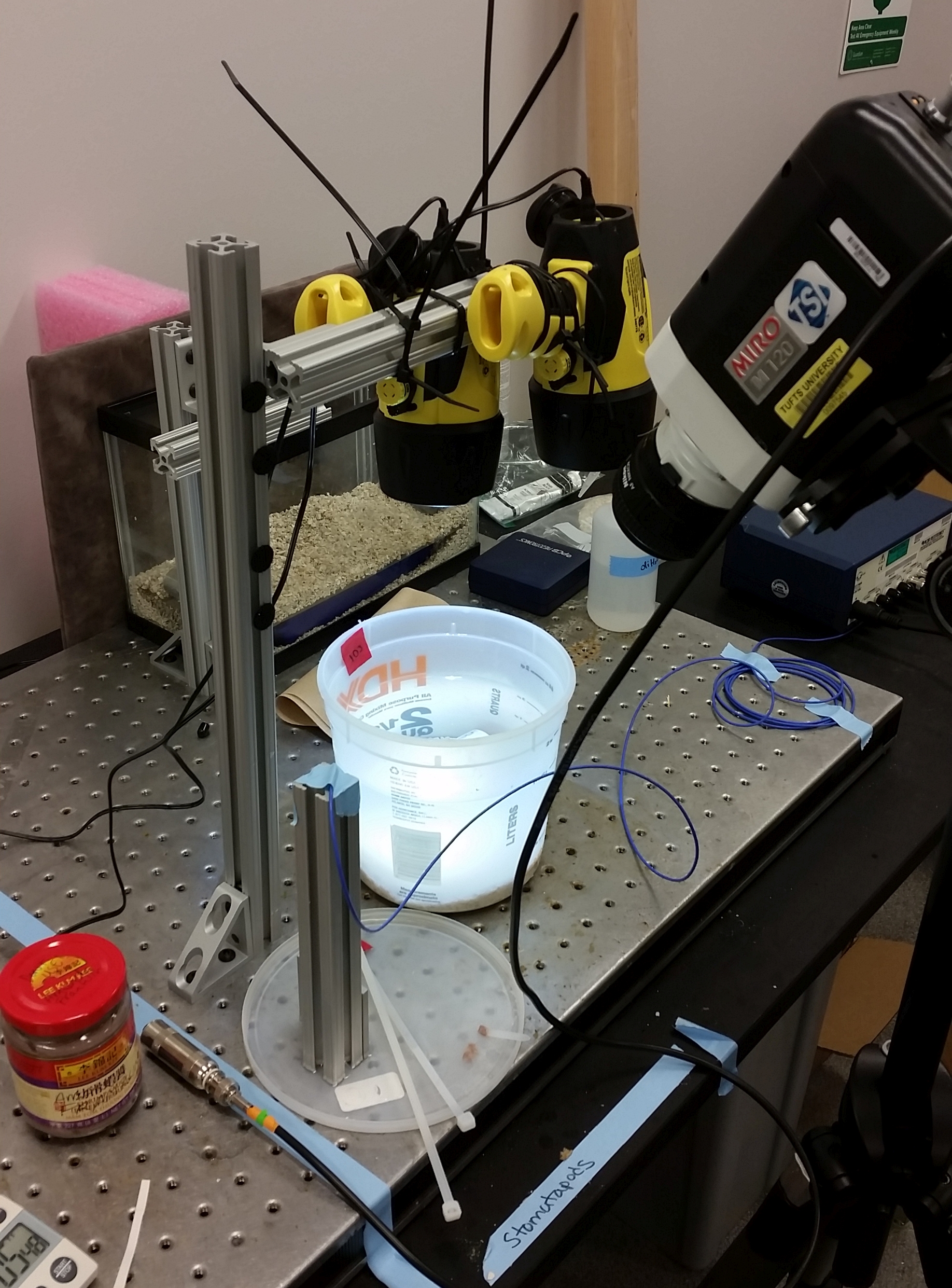
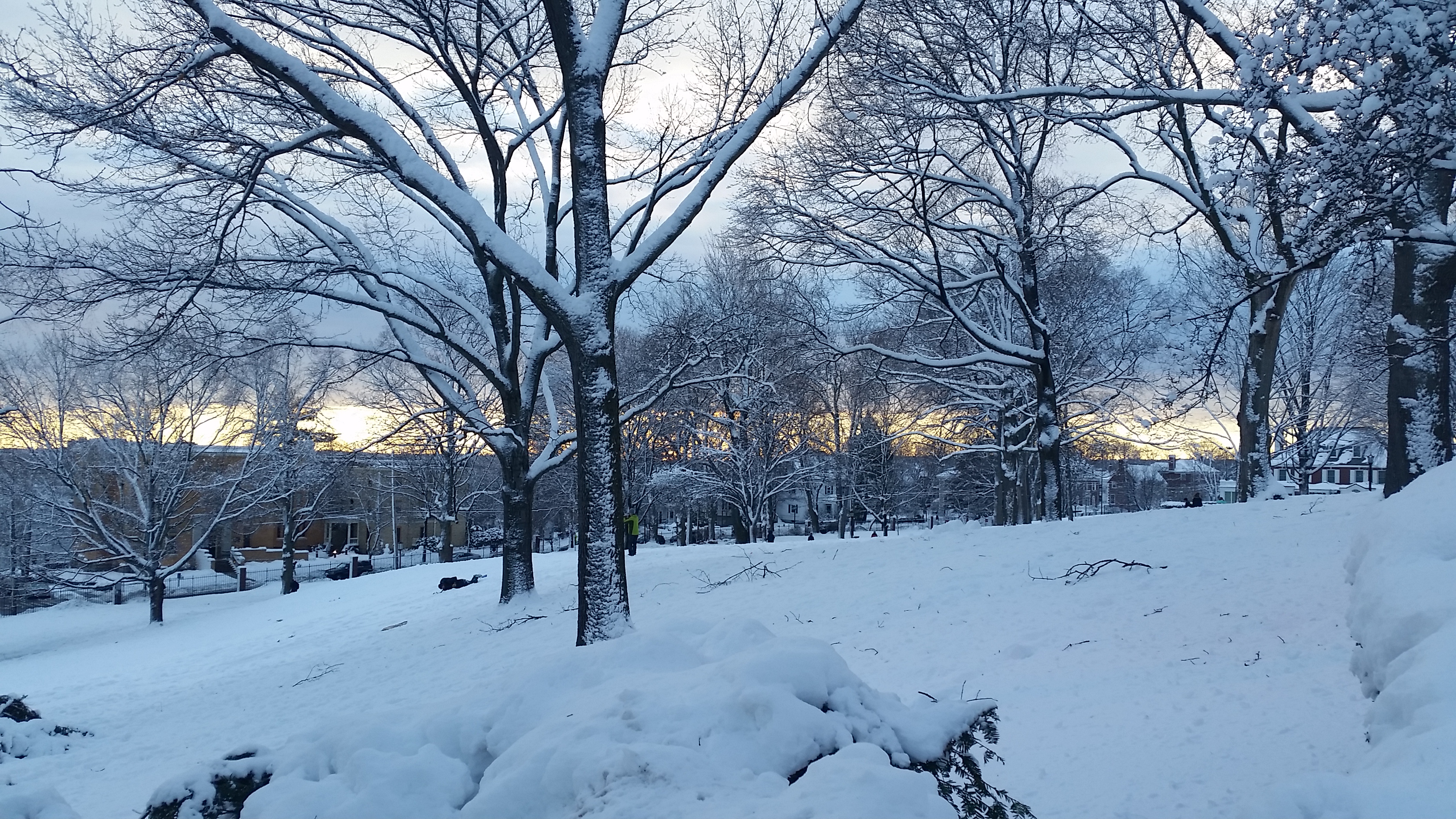

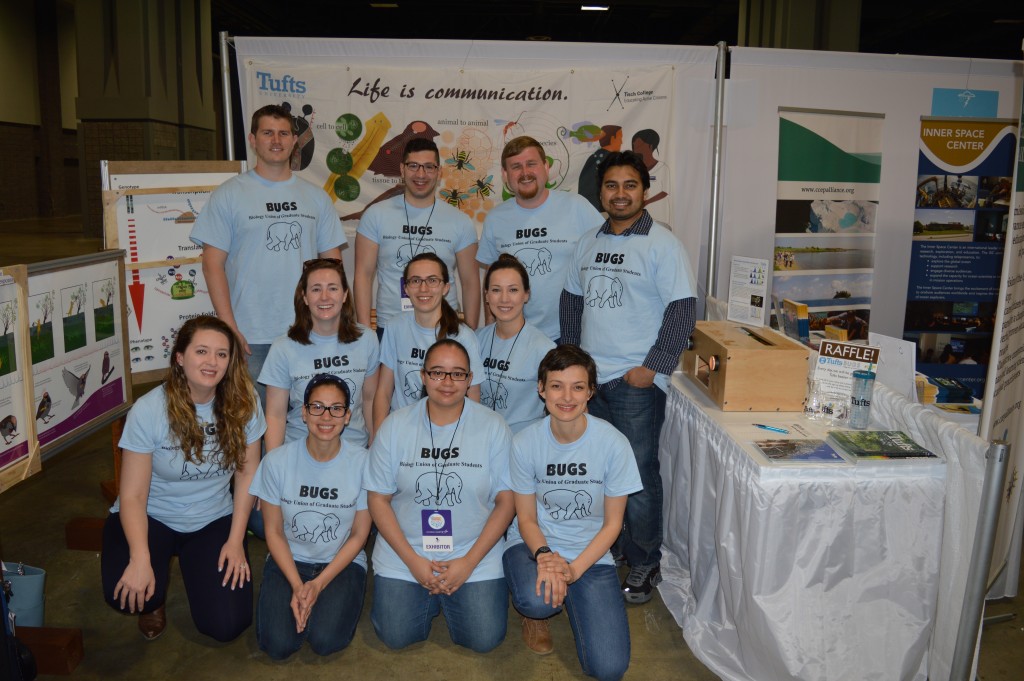
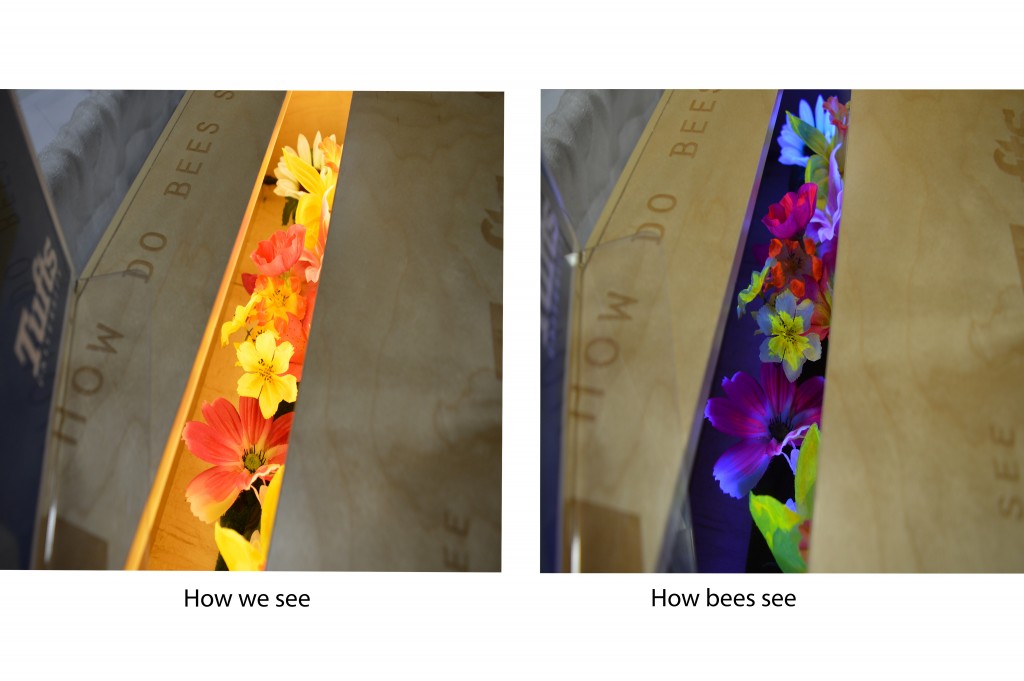
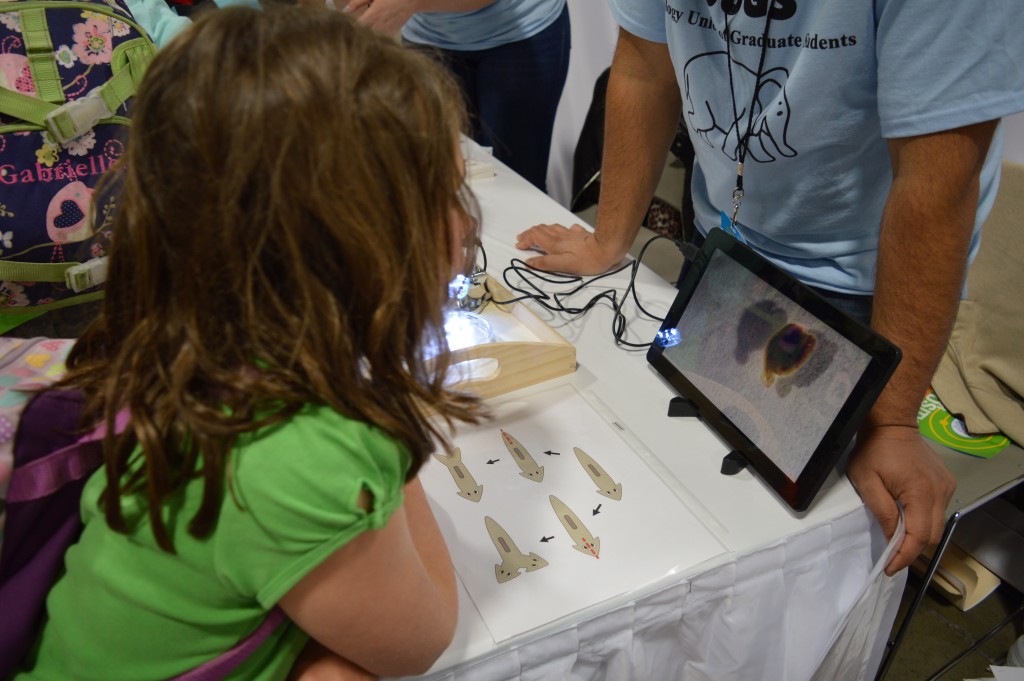
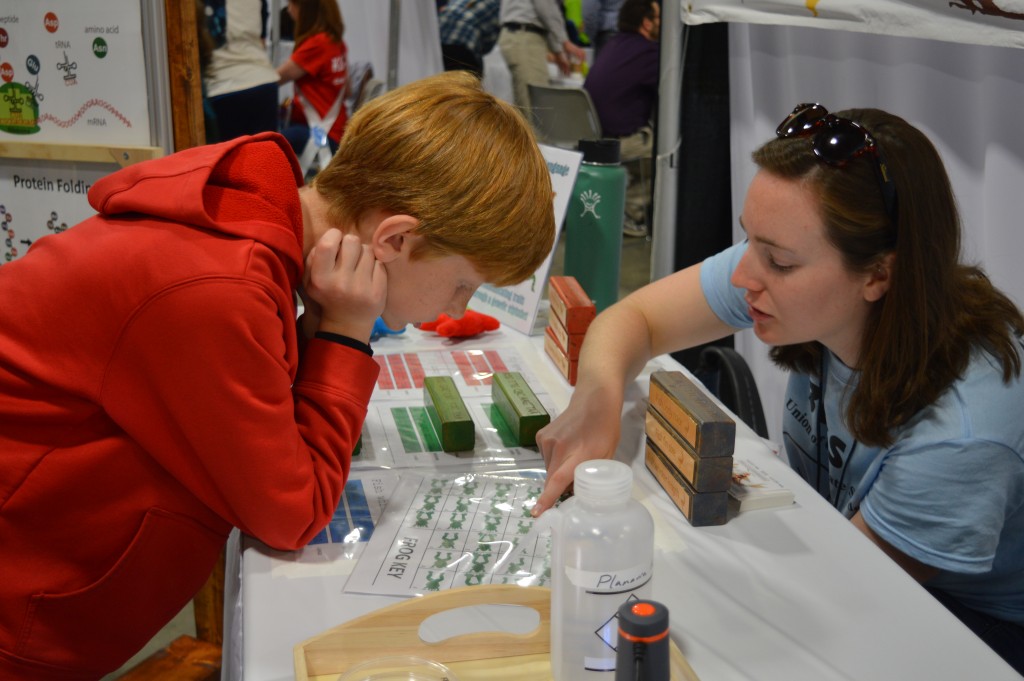
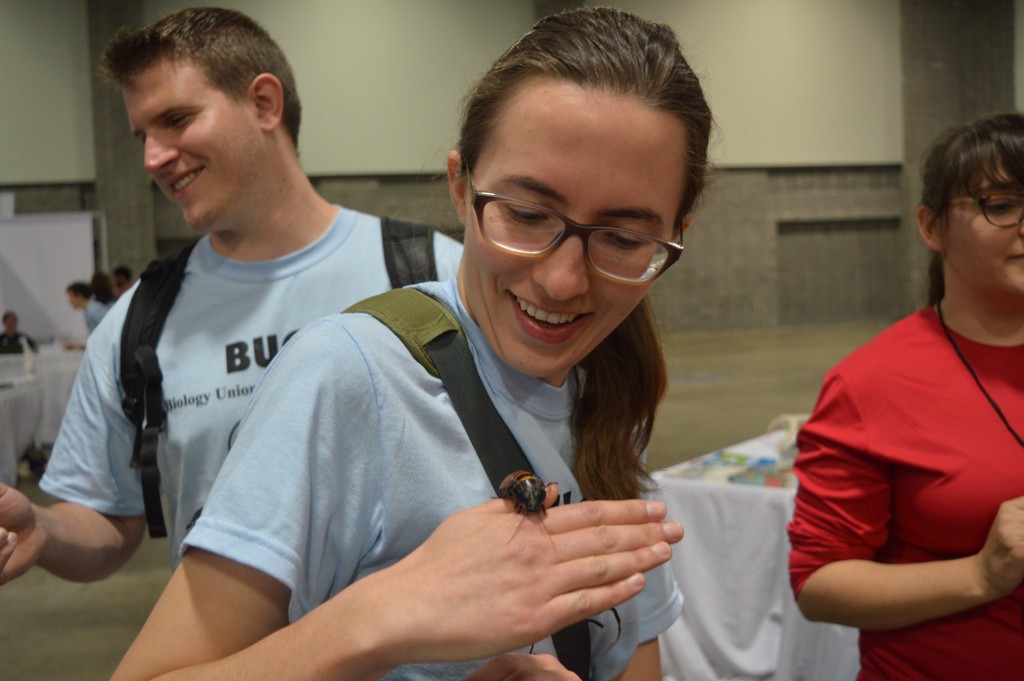
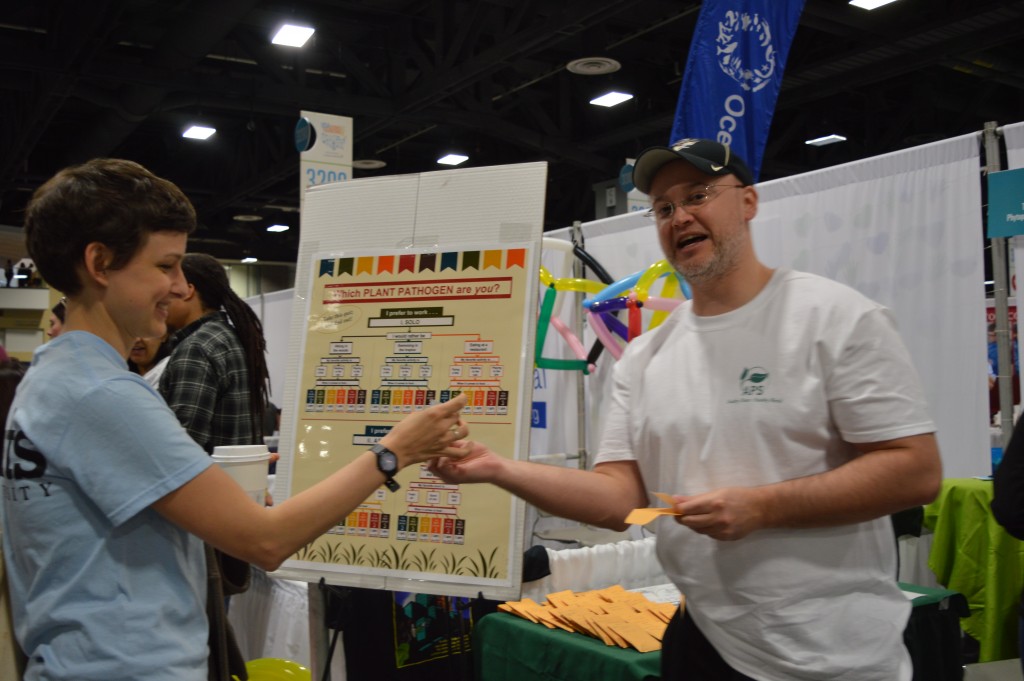
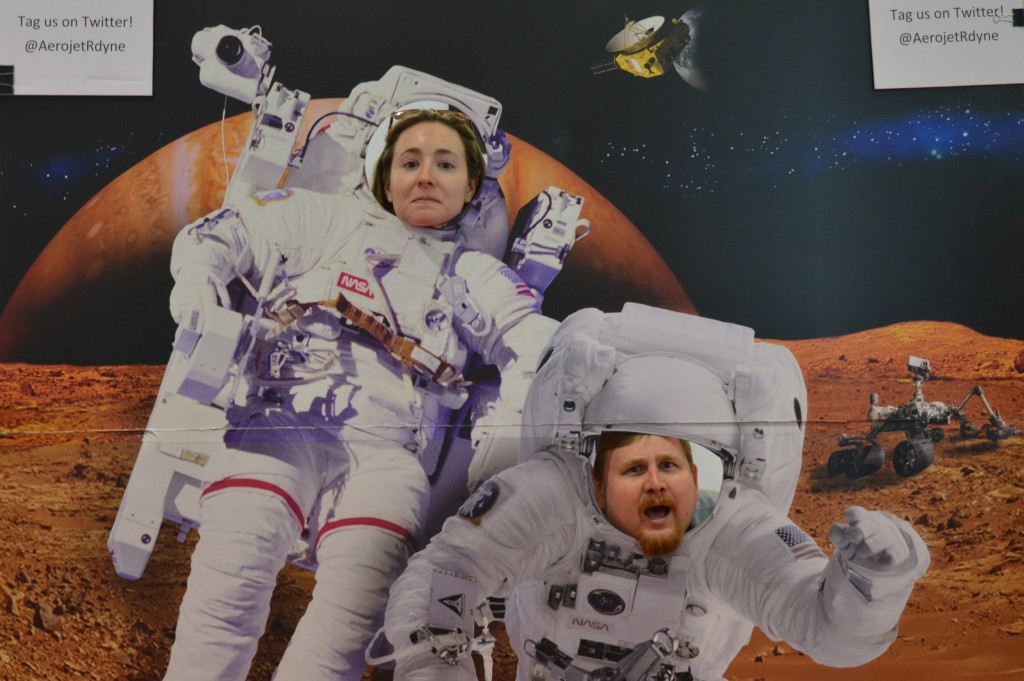

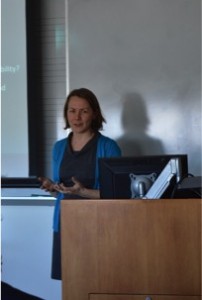
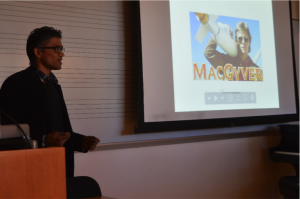
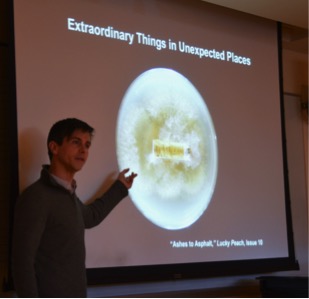
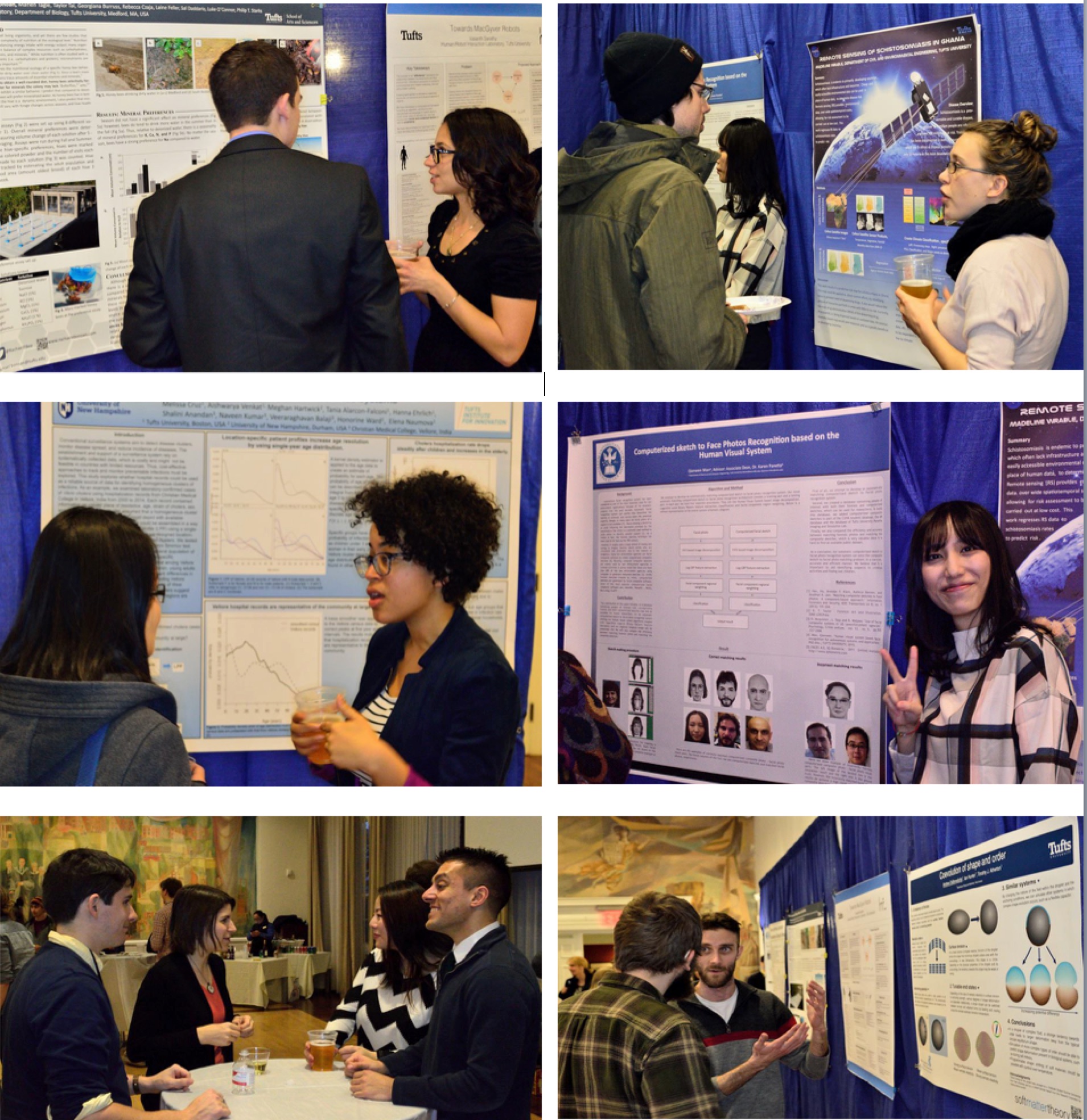
 heard if you were walking around Porter Square early one Saturday evening (November 21, 2015 to be exact). Jenn (Biology grad student) brought lots of energy—and thus, lots of donators—to the annual
heard if you were walking around Porter Square early one Saturday evening (November 21, 2015 to be exact). Jenn (Biology grad student) brought lots of energy—and thus, lots of donators—to the annual 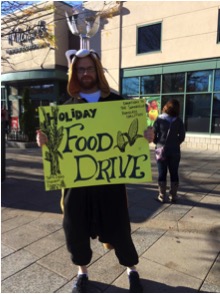 to collect donations of non-perishable foods outside of Star Market in Porter Square. All donations are then brought to the
to collect donations of non-perishable foods outside of Star Market in Porter Square. All donations are then brought to the 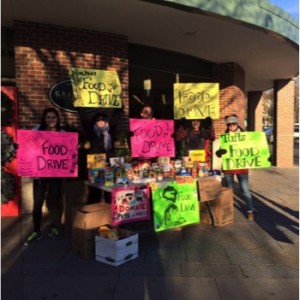 Aside from being able to donate 17 boxes-worth of food to Project SOUP, the best part of the food drive was meeting people from the community and seeing them get into the holiday spirit. We had one man who heard Jenn cheering from afar and told us that he didn’t need any groceries but he was going to go in and buy some just for our food drive. When he came out, he put 2 bags of groceries on our table while chanting “Donate! Donate! Donate!”
Aside from being able to donate 17 boxes-worth of food to Project SOUP, the best part of the food drive was meeting people from the community and seeing them get into the holiday spirit. We had one man who heard Jenn cheering from afar and told us that he didn’t need any groceries but he was going to go in and buy some just for our food drive. When he came out, he put 2 bags of groceries on our table while chanting “Donate! Donate! Donate!”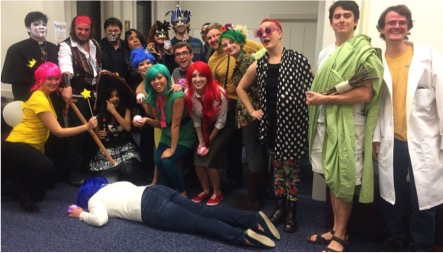
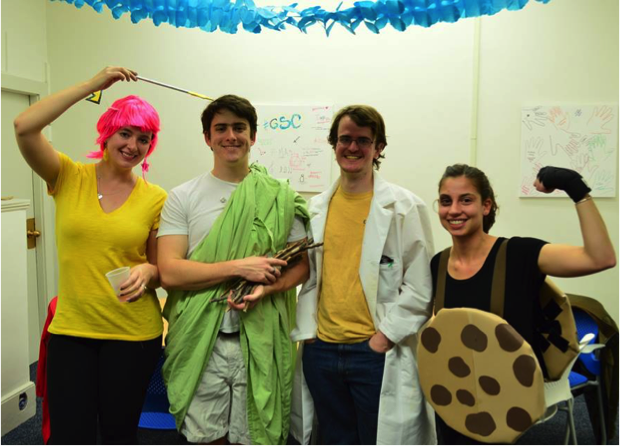
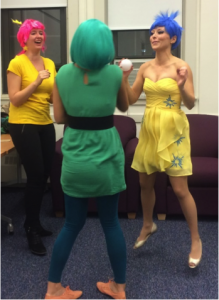
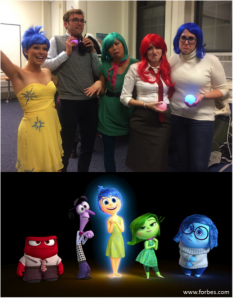 At the party, we had LOTS of candy, other snacks, and a costume contest! The first place winners of the costume contest came dressed as the characters from Pixar’s recent movie Inside Out. From left to right, Kasey, Dave, Jenn, Becca, and Kelsey are all affiliated with the Biology Department here at Tufts. Kasey and Becca are recently graduated master’s students, Jenn and Kelsey are 6th and 5th year Ph.D. students respectively, Dave is a graduate student at MIT and Kasey’s boyfriend. This year, the first place prize was a gift card to Foundry, a nearby restaurant in Davis Square (another possible future blog topic). Kasey—as Joy—was characteristically overjoyed that her group won the costume contest (notice her feet are a good few inches off the ground).
At the party, we had LOTS of candy, other snacks, and a costume contest! The first place winners of the costume contest came dressed as the characters from Pixar’s recent movie Inside Out. From left to right, Kasey, Dave, Jenn, Becca, and Kelsey are all affiliated with the Biology Department here at Tufts. Kasey and Becca are recently graduated master’s students, Jenn and Kelsey are 6th and 5th year Ph.D. students respectively, Dave is a graduate student at MIT and Kasey’s boyfriend. This year, the first place prize was a gift card to Foundry, a nearby restaurant in Davis Square (another possible future blog topic). Kasey—as Joy—was characteristically overjoyed that her group won the costume contest (notice her feet are a good few inches off the ground).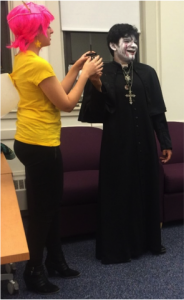 Our second place winner was on the other end of the Halloween spectrum—he was scary. Parading as an exorcist priest, the international Physics grad student went above and beyond for his first Halloween! The exorcist priest won a gift card to Diesel Café, a coffee shop in Davis Square for his prize. Among other characters, we also had pirates, a woodland nymph, Maverick, and Luna Lovegood show up at the party. (Sadness got really into her character for the group photo.) What I like most about GSC social events is that I get to get out of the Biology Department and meet grad students from other departments. At this party alone, there were grad students from Biology, Chemistry, Physics, Computer Science, Engineering, Drama, and more!
Our second place winner was on the other end of the Halloween spectrum—he was scary. Parading as an exorcist priest, the international Physics grad student went above and beyond for his first Halloween! The exorcist priest won a gift card to Diesel Café, a coffee shop in Davis Square for his prize. Among other characters, we also had pirates, a woodland nymph, Maverick, and Luna Lovegood show up at the party. (Sadness got really into her character for the group photo.) What I like most about GSC social events is that I get to get out of the Biology Department and meet grad students from other departments. At this party alone, there were grad students from Biology, Chemistry, Physics, Computer Science, Engineering, Drama, and more!